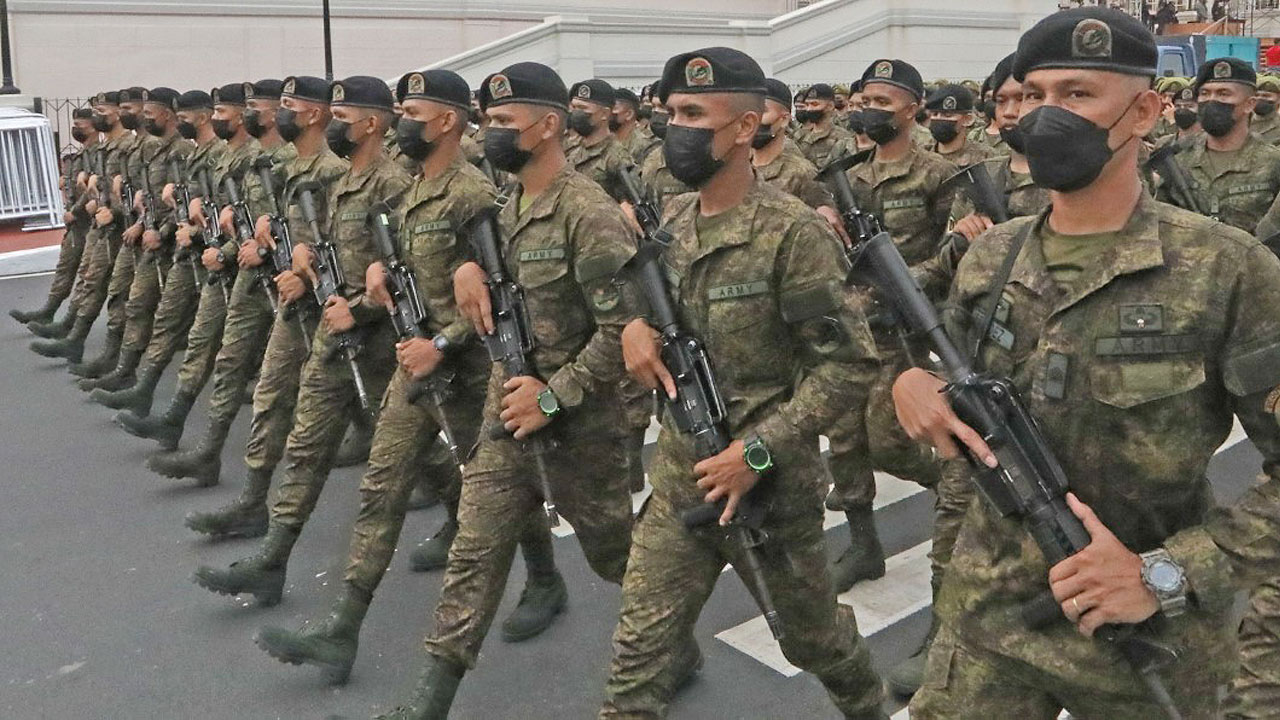Philippine, Australian armies kick off drills

By Kenneth Christiane L. Basilio and Adrian H. Halili, Reporters
THE Philippines and Australia held their first military exercises in southern Philippines on Tuesday, conducting combat drills to enhance urban and jungle warfare tactics, as both nations seek to deepen defense cooperation.
Three platoons of the Philippine Army’s infantry and combat engineer units will hold a month-long drill alongside their Australian Army counterparts in Mindanao, where they will perform combat interoperability exercises in land warfare.
“The Philippine Army is committed to building strong partnerships with partner nations such as Australia with the end view of promoting regional stability and security,” Lieutenant General Roy M. Galido, commanding general of the Philippine Army, said in a statement.
The Philippines seeks to expand its security ties with other western countries and regional allies as it faces an increasingly assertive China over disputed features in the South China Sea.
Already tied with a visiting forces agreement with Japan, Australia and New Zealand, the Southeast Asian nation also seeks similar military pacts with France and Canada after signing a security deal with Germany for expanded cooperation in the cybersecurity space, weaponry and logistics.
Dubbed as Exercise Kasangga — Filipino for ally — the exercise will see Filipino and Australian troops in “real-world training scenarios” that will challenge their techniques in breaching enemy positions, unit mobility and reconnaissance operations, the Philippine Army said.
“The army leadership expressed confidence that Kasangga will further enhance the unit and individual warfighting skills of participating troops and bolster the interoperability of both armies in various war-fighting functions,” it added.
The joint exercise comes on the heels of the Philippine-US Balikatan (shoulder-to-shoulder) drills and will coincide with Exercise Kamandag (poison), a multinational exercise involving the US, South Korea, the United Kingdom and Japan forces on coastal defense operations throughout the main island of Luzon.
Meanwhile, the enhanced defense agreement between Manila and Berlin is expected to boost military training and joint exercises, German Ambassador to the Philippines Andreas Michael Pfaffernoschke told reporters on the sidelines of a defense forum.
“We can expect more visits, we can expect the next round of talks on a technical level in July in Manila probably, and we can expect maybe next year another visit by German ships,” he said.
Last week, the Philippines and Germany signed the defense pact, which seeks to expand cooperation on cybersecurity, defense armament and logistics and United Nations peacekeeping.
Under the deal, defense officials from both nations are set to review proposed joint activities for potential implementation by next year.
“We can expect much more training cooperation between Germany and the Philippines,” Mr. Pfaffernoschke said.
The German envoy, however, ruled out a potential visiting forces agreement (VFA) between the two countries. “VFA currently is not on the agenda.”
The Philippines now has VFAs with the US, Japan, Australia and New Zealand.
Mr. Pfaffernoschke said China’s aggression in the disputed waterway has destabilized the region. “The actions speak for themselves…China is definitely a factor that is not contributing to stabilizing the region.”
Philippine forces have repeatedly sparred with Chinese ships and aircraft in the South China Sea over competing claims on the Spratly Islands and Scarborough Shoal, among other sea features.
A United Nations-backed tribunal based in The Hague in 2016 voided China’s claim to more than 80% of the South China Sea, where more than $3 trillion worth of trade passes through each year, for being illegal.
Armed Forces of the Philippines Deputy Chief of Staff Rommel R. Cordova said the agreement between Manila and Berlin is expected to strengthen their defense dialogues.
“The recent arrangements will further strengthen the current series of dialogue mechanisms we have with the German Armed Forces,” he told the security forum.
He said Germany, one of the world’s “technology leaders,” would help the Philippines build and strengthen its local defense industry.
“There are a number of opportunities, and we hope that we can tap into the expertise of the German defense industry, as well as helping us in our [modernization program],” Mr. Cordova said.
The Philippines is in the third phase of its modernization program called Horizons. It has earmarked $35 billion for the buildup over the next decade as it aims to counter China’s military might in the region.



